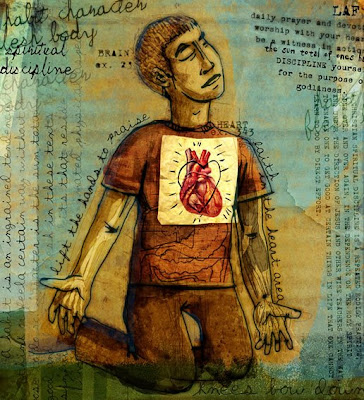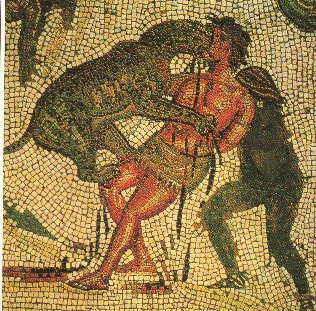Mechanics of a Homily
Q: What is a homily?
A: Let’s start with what it ISN'T…
* several stories of dubious humor strung together with a “moral” tacked on
* a pep talk, an appeal for money, an update on parish construction, or a book review
* a report on Father’s last visit to his shrink/therapist/spiritual director
* a stump speech, a rousing call to political arms, a psychology/sociology lecture
* an academic essay on Things Theological-Philosophical-Scriptural
* a love-letter to big money donors
* 8-15 unscripted minutes of the Mass where Father gets to show the crowd what a great guy he is by blowing off the homily!
…so, what IS a homily?
* a liturgical device of Speaking the Word, giving the Word of God voice for today
* authentic, authoritative instruction in the living faith of the Church
* an exhortation to communal and personal holiness, encouragement in the face of despair
* an “unpacking” of the readings in a way that addresses real problems of faith
* a liturgical device for raising questions, suggesting answers, stirring up trouble, getting into fights
Q: How is a homily prepared/written?
A: Every preacher is different, of course. I can give you a brief outline of how I do it:
I read the lectionary readings about a week ahead of time to see what strikes me. I usually mumble to myself about how dull the reading is or how I’ll never squeeze anything out of THAT text or how we just had that reading two weeks ago, etc. Then I will read it again a few days later—having forgotten it by then—and something will strike me as odd/weird/brilliant/curious. I will grab a commentary to check on any cultural references or historical oddities, and then I will begin to pose a question or a problem to tackle. I will locate the readings in a Bible (I own five different English translations!) and look at “where” the readings are in the larger narrative. This almost always gives me something to work with in the homily. All this time, I am praying for inspiration, for insight. I don’t write a word of my homily until the morning of the day it is to be preached. I am a morning person, so I’m up at 4:30am, coffee in hand, ready to roll! Weekday homilies are 550-650 words, Sunday homilies are twice that.
What’s basic, I think, to any good homily is an application of the readings to real, contemporary problems. I don’t mean to suggest that the homily needs to be a “fix-it” talk where the priest gives the assembly quick and easy DIY solutions to complex problems; however, the homily can be a great way for the preacher to raise issues, questions, problems that are common to his parish/ministry and show how the readings and the tradition might help to address them. This means, of course, that a good preacher is listening, listening, listening to what’s troubling God’s faithful.
I always try to do the following in every homily…
* preach the gospel in front of me, not the gospel I think the congregation wants to hear, or the gospel that will get me the fewest complaints, or the gospel that will get me the most compliments!
* include a humorous story if there’s one that’s truly relevant (I’m a Southerner born and bred, so I exaggerate like I breath—loudly and on a regular basis.)
* use an image, a phrase, or a line from ALL four readings; the Psalms, sadly, often get shortchanged
* preaching is an oral form, so I write for oral presentation: lots repetition, alliteration, “unpacking,” and frequent use of language from the readings, the liturgy of the day, and the tradition
* say something truly challenging and maybe even unnerving! (I’m a Dominican, so I am not particularly inclined to spoon feed folks religious pabulum or feel-good psychobabble just to keep things sweet.)
* I am downright tenacious about preaching the following: a) the universal call to holiness; b). our salvation understood as our divinization; c) our salvation as an undeserved, unmerited, totally FREE gimme from God; d) our responsibilities to the Body of Christ as members of the Body of the Christ; e) the need for true humility before the authority of the Church to teach the authentic faith; f) the absolutely indispensable necessity of a powerful private and common prayer life (cf. CCC Part IV), and g) our responsibilities in revealing Truth, Goodness, and Beauty to one another!
Q: What needs work?
A: I read my homilies from prepared texts. This will never change. It can’t. I am tied to language as a writer, a poet, an English teacher, etc. I just can’t let go of the text and preach “off the cuff.” I will ramble, jabber on for an hour, wander around until someone chunks a hymnal at me. I need to practice more so I can be more engaging with the assembly and not so glued to the paper. I’ve been told that I talk too fast—and I’m a Southerner! And that my homilies are too complex for just listening, thus the blog site for those who want to read them. I’m always wrong about my homilies too—just about every time I think I’ve preached a real dud, I get lots of great feedback. And when I think I’ve preached a real winner—nothing, nada, crickets chirping. Oh well.
Comments? Comments from other preachers particularly welcomed!!
[So, whatta think? Am I following my own rules?]











